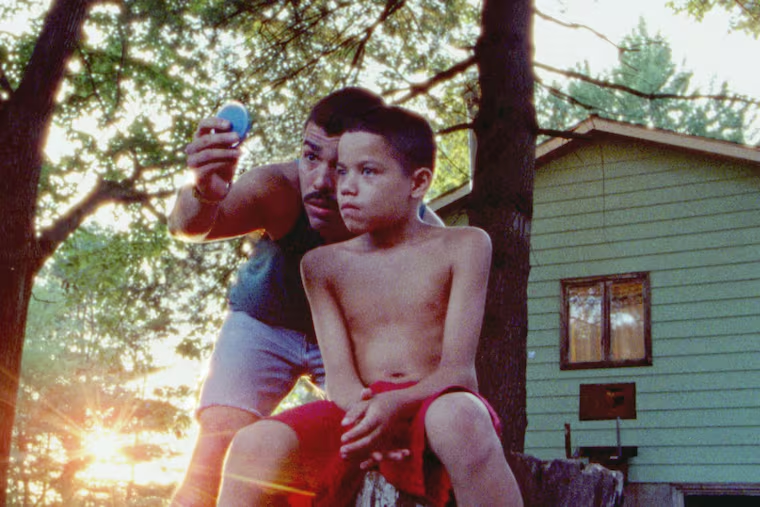‘We the Animals’ is a lyrical coming-of-age drama from a Philadelphia director
Jeremiah Zagar captures the lyricism of Justin Torres novel 'We The Animals' in his film adaptation.

We the Animals, a visually striking, impressionistic adaptation of Justin Torres' coming-of-age novel, is surely the most lyrical work of cinema to feature an AMC Pacer.
Sorry, Wayne's World, but it's true.
The movie is adapted from Torres' fictionalized account of his own childhood, and is set in the early 1990s. It has the grain and color of a gauzy, warm memory, a tone it sustains even when one of those memories is of the famously misshapen Pacer.
The vehicle may be a random artifact, but it may also serve a narrative purpose — a way to express the financial circumstances of the family profiled in the movie. By the early 1990s, the Pacer would have outlasted AMC, which folded after bringing to market too many Pacers, Hornets, and Gremlins. One surmises that dad (Raul Castillo) bought the '70s relic well used, and has held it together with coat hangers and duct tape.
He works the night shift as a security guard at an industrial complex that's seen better days. His wife (Sheila Vand) works at a bottling company. When one is working, one is usually asleep, and so their three boys run wild on the upstate New York countryside, playing, wandering, stealing a tomato or two.
The circumstances have echoes of The Florida Project, and the movie's visual style and subject matter will remind you also of Moonlight — it focuses on the youngest of the three boys (Evan Rosado), who's starting to sense that his family is disintegrating the same moment he realizes he's gay. The association is further strengthened by a scene of the father (known in the movie only as Paps) teaching his youngest son to swim.
The atmosphere and meaning of the scene, though, are markedly different. Paps loves his sensitive youngest boy, but wants to prepare him for a world that may not. So the lesson for the day is sink or swim, and the terrified child does more of the former than the latter.
This leads to a heated argument with Ma (Vand), part of an ongoing and escalating series of domestic disturbances that involve physical violence. Director and co-writer Jeremiah Zagar sometimes shoots these incidents from the point of view of terrified children, listening from another room, left to imagine what might be happening.
The children respond to this turmoil in different ways. The older boys — tough to begin with — get tougher. They harden, they act out. The youngest retreats to the space under his bed, where he creates, setting emotions to paper with text and with drawing, which occasionally spring to life in We The Animals as animation.
It's an example of the way Zagar (the Philadelphia-born director of familial documentary In a Dream) emphasizes the visual. The story is nonlinear, a collection of images that can suddenly assemble into an emotion.
As when Zagar introduces and returns to an image of the three brothers under a sheet playing with flashlights, the beam bouncing off the fabric, revealing a jumble of playful bodies, laughing voices, and dancing shadows,signifying enduring love.
MOVIES
We the Animals
Directed by Jeremiah Zagar. With Raul Castillo, Sheila Vand, Evan Rosado, Josiah Gabriel and Isaiah Kristian. Distributed by The Orchard.
Running time: 1 hour, 32 minutes
Parents guide: R (language, violence)
Playing at: Ritz Five